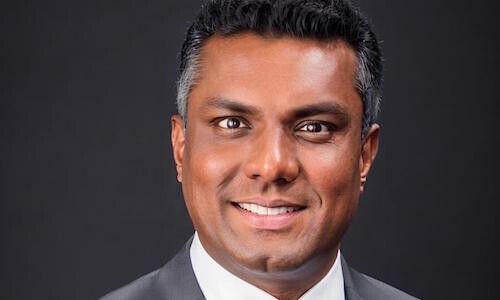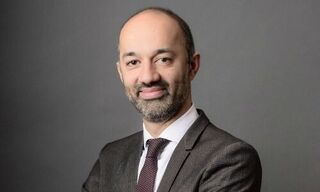Your definitive guide to the highs and lows of 2019: finews.asia features a year-end wrap for four banks with their highlights of 2019. Here is a look at why Julius Baer made headlines this year.
Julius Baer’s shares may have been one of the worst-hit among large Swiss companies but institutional investors – the smart money in the market – are seeing the dip as a buying opportunity.
Singapore's sovereign wealth fund, the Government of Singapore Investment Corporation, or GIC, disclosed a 3.09 percent stake in Julius Baer, the last tranche of which was acquired in the aftermath of the Swiss bank missing its net new money target.
Direct Competition
The sovereign fund’s investment comes despite losing money on the only other sizeable investment it made in Swiss banking. Two years ago the fund, which was then the largest shareholder in industry leader UBS, halved its stake and admitted to being «disappointed» it had lost money on it.
It also pits GIC in direct competition with Qatar Investment Authority, which owns 5.2 percent of rival Credit Suisse. At Julius Baer, GIC will find itself in August company as other shareholders include blue-chip institutions like BlackRock and Wellington.

Disciplined with the new-found riches, CEO Philipp Rickenbacher (pictured above) announced a $404 million share buyback – the firm's first in eight years – sweetening the blow of a write-down on its investment in Italian asset manager Kairos. Its shareholders appeared satisfied with the trade-off, analysts commended the way the bank was using excess capital and reigning in costs.
Convincing Shareholders
There’s no time like the new year to start a diet – Julius Baer will head into 2020 considerably lighter as a new board of nine comes into effect on 1 January. At almost half the size of the previous 15-member board, it is nonetheless expected to be at least as efficient, if not more, not least because it is younger and almost exclusively focused on the bank’s global markets or operations. Closer aligned to the decision-making process at partner-owned-banks like Pictet which the pure-play competes with, the new structure at Julius Baer should shorten its response time to clients.
In an industry where optics matter, it will also go a long way in convincing shareholders that management will not flinch in implementing the cost-cutting measures it had previously announced. Unlike in the past, when the bank was in effect saddled with two boards – one to oversee the holding company and the other the bank – the new board will be responsible for both.

As the fastest-growing of the large private banks, Julius Baer has long-denied concerns that rapid expansion may have compromised diligence. «Project Atlas» – a comprehensive overhaul of the bank’s global client book based on more stringent suitability criteria – is its most sincere effort to date to fix the problem on an operational as well as cultural level. «We went through the whole book globally and based on that we decided that there were probably some clients which should not be on our platform,» said the architect behind the refurbishment, ex-CEO Bernard Hodler (pictured above).
Smaller Banks
Admittedly the cull would result in a «low single-digit» billion-dollar sum of outflows from the $412 billion the bank currently controls, but for a bank that paid half a billion dollars earlier this year to avoid being prosecuted for tax evasion in the U.S., the move is a welcome one. Indeed, Hodler may not have been too far off the mark when he referred to the bank’s updated client onboarding process as a «gold standard» – if Julius Baer, with operations in 27 countries across the world, can standardize compliance, smaller banks will be left with no excuses.
Julius Baer’s biggest announcement this year was met with indifference at best, incredulity at worse. Cheeky headlines screamed «Philipp Who?» when the bank introduced Rickenbacher as the man in charge. He paled in comparison to the allure of Yves Robert-Charrue (pictured below), head Europe and a member of the board, who was the internal frontrunner or Iqbal Khan, Credit Suisse’s blue-eyed boy whose abrupt departure from the bank had fuelled speculation he may be heading to Julius Baer.

Charrue’s youth – he was 46 at the time – and popularity as well as his success in building several businesses for the bank lead to him being compared favorably to predecessor Boris Collardi. By contrast, Rickenbacher, a former McKinsey consultant was not known to many even within the bank.
Those who did know of him questioned why someone with no client-facing experience was assuming the most prominent position at the bank. Seemingly impervious to the comments, Rickenbacher has since been acknowledged by colleagues as «the smartest man in the room.»
Steadily Depleted
Despite trying to manage the messaging since Collardi’s defection to Pictet, Julius Baer said in November that its performance for the year had in fact been impacted by the number of bankers that left the bank during the year. The bank’s regional heads remained largely intact during the rout – Jimmy Lee and Robert-Charrue, its heads of Asia and Europe respectively being the most notable – but its rank and file were steadily depleted.

As a result, long-established businesses were disrupted – the Asian intermediaries with the departure of Pamela Phua (pictured above); the Latin America business with the departure of Marc Braendlin; the Middle East business with the departure of Daniel Savary. Predictably, the trio resurfaced at Pictet, bankers in tow.
Expensive Business
One look at the large space Pictet is fitting out for use in Zurich, opposite Julius Baer, and it is reasonable to assume the Genevan bank intends to continue hiring. But Julius Baer has been flexing its muscles and replenishing its ranks as well, most recently with the hire of Jason Moo from Goldman Sachs.
But hiring away bankers is an expensive business and a talent war hurts both revenues and margins, a luxury no bank can truly afford.

























